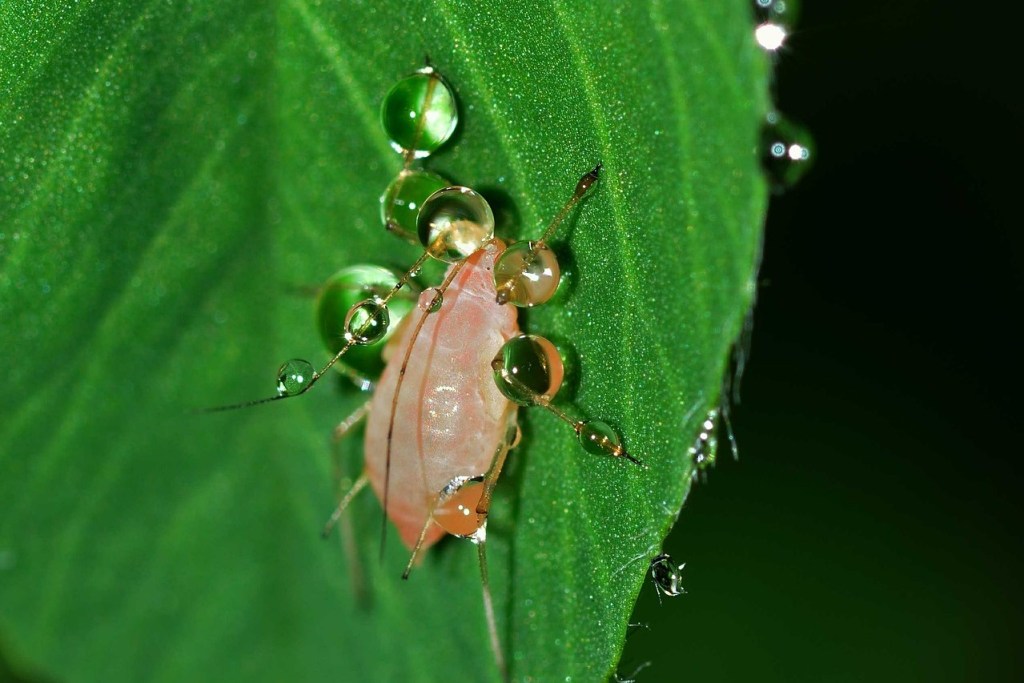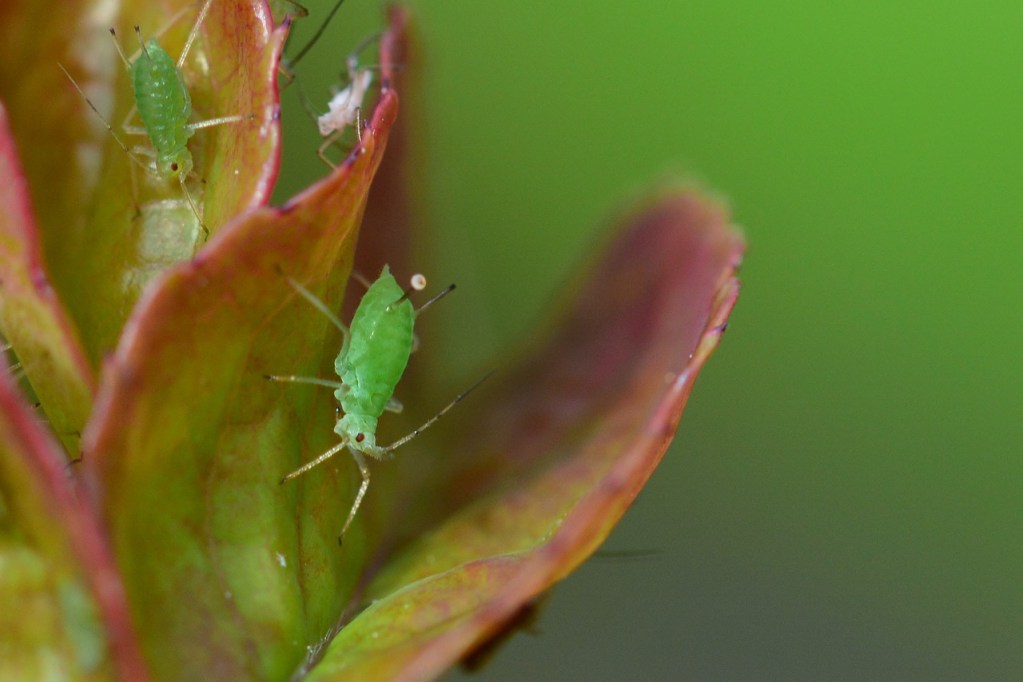If you have a thriving garden, planted with all your favorite plants, and good weather on the horizon, then there’s only one thing that can ruin it: pests. Different pests target different plants, but one insect that can cause problems in any garden is the aphid. These small pests are more of an annoyance than a threat. However, aphids can spread diseases, and severe infestations can cause carnage in your garden. If you need natural, organic solutions to your aphid problem, then here are several options for you to consider.
What are aphids and how do they hurt plants?
Aphids are small insects that feed by biting into plants and sucking the liquid out of them. Unlike beetles, aphids are soft-bodied, meaning they don’t have a hard exoskeleton or shell. There is a wide range of colors for these pests, including white, black, and green. Aphids typically target the leaves and stems of plants.
If there are only a few aphids on your plant, then it will likely be able to recover from the small bites they leave. However, a severe infestation can lead to a dehydrated plant. This can result in individual leaves or stems dying, but if the plant is young or small, or the infestation is great enough, it can kill the entire plant.
Another serious threat that aphids can pose is the mosaic virus. There are multiple mutations of this virus that affect different plants, but one of the major ways they spread is through aphids. The mosaic virus got its name for the distinctive yellow and light green square patterns it causes on the leaves of infected plants. It results in stunted growth and damaged or small leaves. Once the virus infects one plant, aphids can then continue spreading it to other plants in your garden.

Physically removing them
If you can see the aphids, then you can physically remove them. If there are only a few, then brushing them off with your hand is perfectly acceptable. You can squish them to keep them from coming back, or just brush them away. If there are more than a few, or if you’d rather not use your hands, then air and water work as well.
A compressed air canister, like what you might use for dusting or for cleaning your keyboard, blow aphids off of your plant. Compressed air is unlikely to harm your plant, but if you’re concerned, you can test the air pressure with your palm beforehand to make sure it isn’t too strong.
To get rid of aphids with water, you can use a hose for large plants or a spray bottle for smaller ones. Test the pressure of both tools before using them. You may want to try different nozzles as well, to make sure the stream will be targeted and forceful enough to knock aphids loose, but not so strong that the plant is at risk.

Adding a deterrent or pesticide
If you notice aphid damage, but can’t see the aphids themselves, or if you’ve physically removed them and want to make sure they don’t come back, then applying a pest repellent or pesticide is your next option. There are a few natural or organic options you can choose from.
Capsaicin spray comes from hot peppers, and you can spray it on the leaves of many plants to keep pests from munching on them. However, you shouldn’t use it on plants with sensitive leaves, and you should always follow the instructions when applying it to avoid irritating your plant with overapplication. Since capsaicin is a skin and eye irritant, it’s a good idea to wear protection and take care when applying it.
Neem oil is another option. It’s effective at keeping many insects away from plants and has less of an environmental impact than harsher chemical sprays. You can also make your own insecticidal soap by mixing a small amount of dish soap and water. Spray this DIY insecticidal soap onto your plant leaves or onto the aphids directly.

Making use of predators
You can decrease the aphid population in your garden by relying on the aphid’s predators, such as ladybugs. You can either buy live ladybugs online and release them into your garden or attract ladybugs to your garden from the surrounding area. Both are somewhat tricky, as there’s no guarantee that ladybugs released into your garden will stay there, and if your local ladybug population is low, then you won’t have much success luring them.
To increase your success with releasing ladybugs, release them at night. Place a small water source nearby for them, and set them near the plants most heavily infested with aphids. To lure ladybugs into your garden, make sure they have an additional food source. Dill and marigold are both good choices.
Aphids can be troublesome little insects, but now you know how to get rid of them. By using these tips and tricks, you can get rid of them without using harsh chemical pesticides. In many cases, it’s more effective to combine two or more tactics for controlling pests. When dealing with aphids, consider your garden’s needs and the severity of the infestation when picking which methods to use. If you aren’t sure which to choose, try several and see what works best for you.



